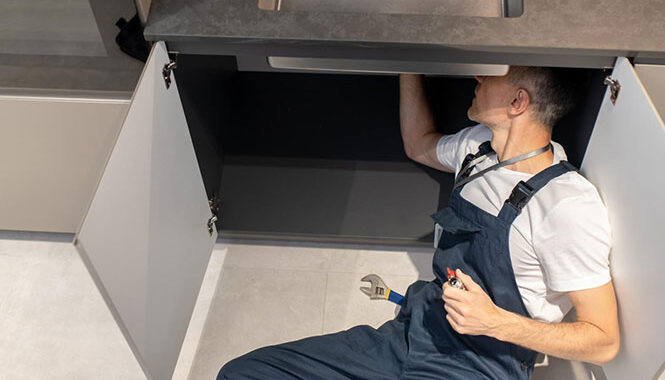In a quest to maintain a fresh and clean kitchen, the humble sink drain often gets overlooked. But, keeping your sink drain spotless is integral to a healthy and happy home. At ProFlush, we are passionate about providing expert advice to help homeowners across Australia achieve clean and hygienic living spaces. This comprehensive guide will show you how to clean your sink drain, eliminate unpleasant odours, and provide natural solutions to keep your kitchen sink drain fresh and free-flowing.
To gain further insights into kitchen hygiene practices and statistics, you can refer to the Australian Food Safety Information Council’s report on Home Food Safety in Australia. This report provides valuable information on food safety practices in Australian households, highlighting the significance of maintaining a clean and hygienic kitchen environment.
In Australia, the kitchen is considered the heart of the home, making it crucial to maintain cleanliness. However, a survey found that 52% of homeowners often neglect the kitchen sink drain, a critical aspect of kitchen hygiene.
The Basics of Cleaning Your Sink Drain
- Remove Visible Debris: Start by physically removing any visible debris from the drain. This can include food scraps, hair, or any other materials that may have become lodged.
- Rinse with Boiling Water: Boil a kettle of water and pour it down the drain to dislodge any grease or soap buildup. The hot water also helps to eliminate germs and bacteria.
- Apply a Cleaning Solution: A cleaning solution can help break down any stubborn grime or build-up. This could be a commercial drain cleaner or a natural solution such as vinegar and baking soda.
- Scrub and Rinse: With the aid of a firm scrubbing brush or even a repurposed toothbrush, give the drain and its surrounding surfaces a thorough scrub. Following this, ensure you rinse it out comprehensively with a flow of warm water.
How to Clean Sink Drain Smell Naturally
Are you plagued with a persistently smelly kitchen sink drain? Fear not! Here are some effective and natural ways to tackle this issue.
Baking Soda and Vinegar: These kitchen staples work wonders in eliminating drain odours. Pour 1/2 cup of baking soda into the drain, followed by 1/2 cup of vinegar. Allow the mixture to fizz and work its magic for 15-20 minutes, then rinse with boiling water.
Lemon or Citrus Peels: After using citrus fruits, don’t throw away the peels! Put them in your drain and run warm water. They will help to freshen up the drain and give a pleasant citrus smell.
Diving Deeper into Cleaning Your Sink Drain
When dealing with a stubborn or neglected sink drain, your approach may need to be a bit more hands-on.
The Plunger Approach: For stubborn blockages, using a plunger can provide an effective and immediate solution. With a dash of hard work and the proper methodology, you can generate sufficient suction to dislodge the unwanted debris. Using a Plumber’s Snake: If your efforts with the plunger prove unsuccessful, a plumber’s snake becomes your next best ally. This handy instrument can reach into the deepest crevices of your pipes, breaking apart blockages and sweeping away accumulated gunk.
This flexible coil of wire can reach deep into your pipes, breaking apart blockages and scraping away built-up grime.
Remember, for the tough jobs that require a more professional touch, ProFlush is here to help.
Prevention: The Key to a Clean Sink Drain
As the old saying goes, “prevention is better than cure.” This certainly applies to maintaining a clean sink drain.
- Regular Maintenance: Regularly rinsing your drain with boiling water can help to prevent build-up. Similarly, a weekly scrub with a brush can also be beneficial in maintaining a clean drain.
- Be Mindful of What Goes Down the Drain: Avoid pouring oil or grease down your drain as these can solidify and cause blockages. Food scraps should also be disposed of in the bin rather than the sink to prevent buildup and potential blockages.
- Install a Drain Strainer: A strainer can be a simple and effective way to prevent unwanted items from going down your drain.
By following these preventative measures, you can save yourself a lot of time, effort, and potential frustration down the line.
The Power of Natural Cleaners
One advantage of natural cleaners is their low environmental impact compared to chemical-based cleaners. Not only are they generally safe to use, but they can also be highly effective. For instance:
Hydrogen Peroxide: This common household item is a powerful cleaner and sanitiser. Pour half a cup of hydrogen peroxide down the drain, let it sit for 20 minutes, and then flush with boiling water.
Salt and Hot Water: A mixture of salt and hot water can effectively clean your drain and remove any unpleasant odours.
Cream of Tartar and Salt: A powerful yet eco-friendly cleaning agent can be whipped up right in your kitchen using cream of tartar and salt. Mix these kitchen staples into a robust paste, lavishly coat the drain area, allow the mixture to work its charm for around fifteen minutes, then proceed to scrub diligently and wash it away thoroughly.
Utilising these natural alternatives, we can clean our sink drains in a way that is gentle on our pipes and kind to our environment.
When to Call in the Professionals
While most minor clogs and odours can be taken care of at home, there are times when it’s best to call in professionals. Persistent clogs, recurring odours, or slow drains despite repeated cleaning attempts are all signs that professional help might be needed.
At ProFlush, we have the expertise and tools to effectively tackle all your drain issues. We’re acutely aware that every home has its unique characteristics and quirks, and the issues in maintaining them can be just as varied. If you’re wrestling with a relentless blockage, a mysterious odour, or you just need reassurance that everything is as it should be, we’re on standby to lend a hand.
In Conclusion
Maintaining a clean sink drain is crucial for a clean and hygienic kitchen. Armed with the knowledge from this guide, you can tackle any drain issues that come your way. Remember, a clean kitchen is a happy kitchen.
At ProFlush, we are always here to provide expert advice and assistance. If you have any concerns or need help with your sink drains, don’t hesitate to get in touch with us.
Frequently Asked Questions
Q1: How often should I clean my sink drain?
Cleaning your sink drain should be a part of your weekly cleaning routine to maintain hygiene and prevent blockages.
Q2: Can I use bleach to clean my sink drain?
While bleach can effectively clean your drain, it’s harsh and can damage your pipes if used often. Consider using natural solutions instead.
Q3: What can I do to prevent my sink drain from getting clogged?
Avoid dumping oil, coffee grounds, or food scraps in your sink. Regularly clean the drain and use a drain strainer to catch debris.
Q4: Is it safe to clean sink drain with baking soda and vinegar?
Yes, baking soda and vinegar are safe, natural, and effective cleaners for your sink drain.
Q5: Why does my sink drain smell bad?
Drain odours are often due to a buildup of food particles, grease, or bacteria in the pipes.





